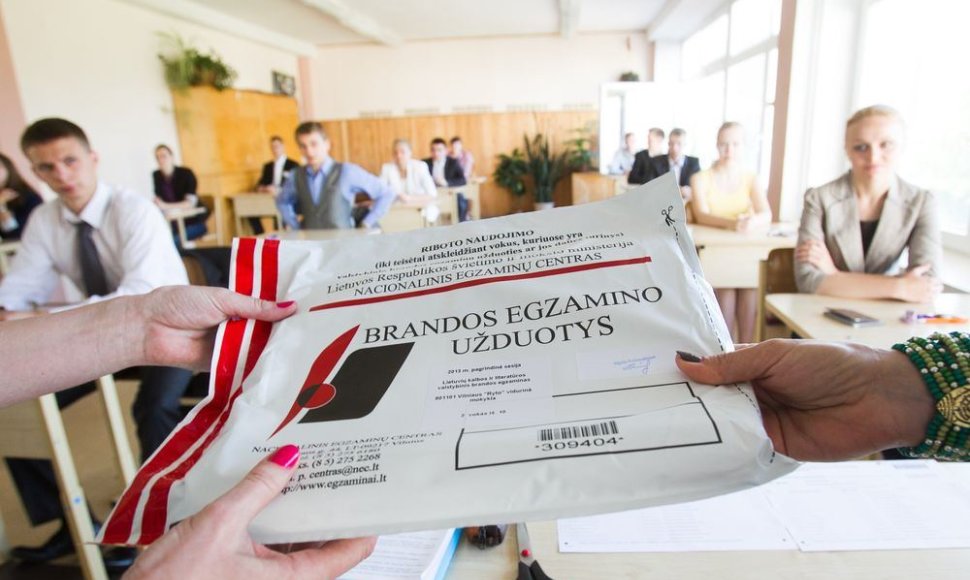The ruling is final and binding.
Seeking a proper balance of constitutional values and taking into account the fact that the graduation exam session has not finished yet and the process of entrance to higher schools is still underway, the court ruled that the order is deemed annulled as of September 1.
The court believes that the state language should be a value under special protection, and its use in the public life is one of the guarantees of statehood.
"One the one hand, states have the duty to ensure opportunities for representatives of ethnic minorities to receive education in their mother-tongue. On the other hand, they have the right to set a certain level of knowledge of the state language. By setting such requirements, however, the state should also ensure proper conditions for learning the state language," the court said in a statement.
Having established that the minister's order provided for a different length of the graduation essay, the judicial panel ruled that "the regulation with regard to schoolchildren receiving education in the Lithuanian language and ethnic minority languages was obviously different."
A group of members of the Seimas turned to court after Pavalkis signed an order on the facilitation of the state Lithuanian language graduation exam for ethnic minority students, allowing them to write a shorter essay and make more grammar mistakes. The lawmakers said the changes, which were made in response to demands from the Electoral Action of Poles in Lithuania party, were discriminatory.
Education minister welcomes the ruling
Lithuanian Minister of Education and Science Dainius Pavalkis says that the court ruling on his decision will only help in the long-term goal of unifing the Lithuanian language exam for all graduates.
"It's a very good decision, and it will help me as this ruling once again stated what is our strategic goal, which is for all Lithuania's young citizens to take the same state Lithuanian language exam, which is the case in our neighboring countries and in the majority of European countries," Pavalkis told BNS on Tuesday.
In his words, decisions on how his controversial order will be made after the marking of the Lithuanian language examination papers.
"By the end of this year, I suppose. I cannot say any specific deadlines but we still have some six months for the changes to the examination procedure to be established with a new order. After we get the results, in the middle of July, then we'll see what we have to change. I have always said in public, and to the president and everyone, that the procedure will be reviewed after a year. So I am not taking my words back," he said.
Meanwhile Rita Tamašunienė of the Electoral Action of Poles says that if, following the court ruling, the state Lithuanian language graduation exam is unified, it will constitute discrimination of ethnic minority students.
"We have a court ruling. Although, in fact, we believe that at the end of the day decision on the unification of the exam cannot be made without giving children equal opportunities to get prepared. (...)
"We are not talking about the Lithuanian language only. Simply, the Lithuanian language is unified without giving children the opportunity to get properly prepared for the exam. And we believe that it will definitely be discriminatory with respect to ethnic minority students, and those minor facilitations allowed children to pass that exam," Tamašunienė told BNS on Tuesday, commenting on the Supreme Administrative Court ruling.
Asked what actions the Polish party plans to take, Tamašunienė said the party will not give up. "We'll register amendments and will try to talk to colleagues, convince them."












